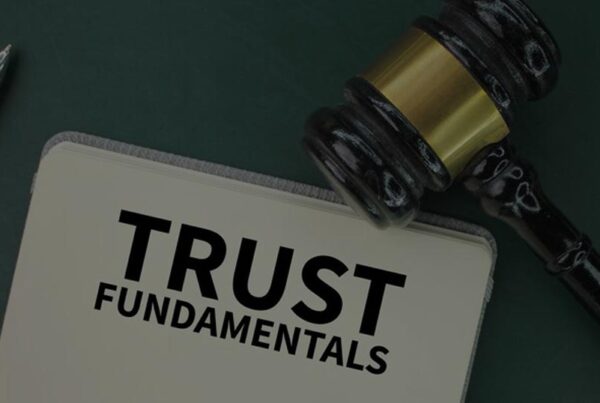WHITE COLLAR CRIMES
18 U.S.C. §1347: Federal Health Care Fraud
As the lead agency tasked with uncovering and investigating health care fraud, the FBI reports that health care fraud costs the U.S. tens of billions of dollars each year. Since 2007, the FBI has worked collaboratively with other government agencies, including the Food and Drug Administration (FDA), the Drug Enforcement Administration (DEA), the Internal Revenue Service (IRS) and the U.S. Attorney’s Office, forming Health Care Fraud Strike Force teams. Strike Force teams are based in cities across the country, dedicated to the investigation and prosecution of health care fraud and related offenses under 18 U.S.C. §1347, and other related statutes. The Chicago Strike Force is one of the newest teams which, according to the U.S. Department of Justice (DOJ), has successfully prosecuted various health care providers including doctors, patient recruiters and others since its inception in 2014. However, health care providers are not the only ones targeted by Strike Force teams. The National Health Care Anti-Fraud Association (NHCAA) reports that individuals suspected, or convicted, of other crimes such as drug trafficking are now transitioning into health care fraud schemes. Anyone participating in such a scheme is a potential target for prosecution.
What is the definition of a ‘health care benefit program’?
‘Health care benefit program’ is defined under 18 U.S.C. §24. This section provides a relatively broad definition of ‘health care benefit program’ as encompassing any public or private plan or contract under which any individual or entity provides some medical benefit, item or service in exchange for payment. 18 U.S.C. §24 also states that the plan or contract must ‘affect commerce’ (i.e., impact the interchange of goods and services between states). When it comes to this element of the statute, the federal government has a relatively low bar to meet and relates strictly to the health care program’s actions, not those of a defendant. The government only has to show that the health care program either engaged directly in interstate commerce, or its activities simply affected interstate commerce in some way.
What type of conduct is prohibited?
As with many other federal criminal statutes, 18 U.S.C. §1347 prohibits both the successful execution of a health care fraud scheme, and the attempt to execute such a scheme. To convict a defendant charged under this statute, a prosecutor must prove beyond a reasonable doubt that the defendant knowingly and willfully executed, or attempted to execute, a scheme that meets just one of the following criteria:
(1) The defendant defrauded (or attempted to defraud) any medical or health care benefit program as defined above; or
(2) The defendant obtained (or attempted to obtain) money or property owned or controlled by any health care benefit program, under fraudulent pretenses or promises, associated with the delivery of services, or payment for benefits under the program.
What are the possible penalties for medical or healthcare fraud?
Under 18 U.S.C. §1347, the baseline penalty includes fines up to $250,000 for individuals and up to 10 years in prison, or both. If a violation of this section involves serious bodily injury, the defendant could face fines and up to 20 years in prison. 18 U.S.C. §1365(h)(3) defines ‘serious bodily injury’ as injuries that involve a substantial risk of death, extreme physical pain, disfigurement, or the impairment or loss of organs, limbs or mental faculties. If the §1347 involves death, the defendant could face fines and life in prison. Additionally, fine amounts may be increased based on the defendant’s pecuniary gain as a result of the offense, or if the offense resulted in a loss to someone other than the defendant.
What are some related offenses to federal healthcare fraud?
The elements of 18 U.S.C. §1347 are nearly identical to 18 U.S.C. §1344(2), obtaining bank property by false or fraudulent pretenses, and is closely related to other federal offenses. According to the DOJ, health care cases lead to a variety of different charges under statutes including: 18 U.S.C. §1349, attempt or conspiracy to commit health care fraud, 18 U.S.C. §669, theft or embezzlement in connection with health care, 18 U.S.C. §1957, money laundering, 42 U.S.C. §1320a-7b(b), health care kickbacks and others.
Recent cases in Illinois demonstrate ongoing Strike Force efforts and the active prosecution of federal healthcare fraud and related offenses. In March of 2019 the owner of a Chicago-based home health company was found guilty for participating in a scheme that cost Medicare over $3 million in fraudulent claims. The defendant was convicted of ten counts including conspiracy to commit health care fraud, conspiracy to pay and receive kickbacks, payment of specific kickbacks and visa fraud. In May of that same year, a married couple who jointly owned a home health agency in the Chicago area pleaded guilty to participating in another scheme targeting Medicare. In this case, the defendants defrauded Medicare of nearly $2 million through a kickback scheme in which they made kickback payments in exchange for patient referrals. Numerous other defendants currently face similar charges in Illinois as the Chicago Strike Force continues to crack down on health care fraud in Northern Illinois.
White Collar Crimes
Recent Posts






